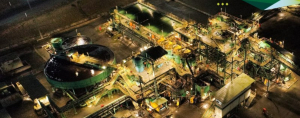K-pop fans call out to South Korea’s automotive giant Hyundai to withdraw from a planned coal power plant in North Kalimantan.
KPOP4PLANET, a fan-driven climate initiative, along with Indonesian fans of BTS (known as ARMY) wrote an open letter to South Korean automotive company Hyundai to withdraw from their recent agreement with Adaro in which the company invested in a 1.1 GW coal power plant and smelter construction in North Kalimantan.
Hyundai plans to use aluminum for its cars from Adaro's smelter where they describe it as 'green' because it will be powered by a hydropower plant from the Kayan river.
However, from their plan and project timeline, the hydropower plant will only be available in 2029. While in the first phase, Adaro's smelter will be dependent on coal.
In July 2021, Hyundai Motor Company announced its commitment to attain carbon neutrality in its global operations and become a member of RE100.
Hyundai stated its plan to transition from fossil fuels and procure renewable energy such as solar and wind to achieve its goals of becoming carbon neutral by 2045.
The open letter and accompanying petition are part of the larger KPOP4PLANET campaign ‘Hyundai, Drop Coal’ –inspired by BTS’s hit ‘Mic Drop’ – that calls on the company to back out of the agreement and to disclose its production energy sourcing.
The campaign is being led by Indonesian K-pop fans, especially ARMY, who know the K-pop supergroup is the face of Hyundai’s Ioniq EV.
“Hyundai is one of the brands that come to mind when we hear the word ‘sustainable vehicles’, especially since our idols became the brand’s representative and actively talk about it,” said Nurul Sarifah, a KPOP4PLANET activist who coordinated the campaign in Indonesia.
“That’s why fans are encouraging Hyundai to live by their principles and refrain from a project that could harm not only the environment but also impact the local community,” Nurul added.
ARMY writes an open letter to Hyundai
Hyundai’s vehicles are popular among ARMY because their idols are the brand ambassador for the Ioniq EV.
Expressing their concern about the news, the Indonesian ARMY signed an open letter to be sent to the Executive Chair of Hyundai by KPOP4PLANET as a part of this campaign.
They are working hand-in-hand with KPOP4PLANET through the campaign to encourage the company to back out from a project that could further harm the environment.
"We have seen and experienced the impact of climate disaster ourselves. From floods, air pollution, drought, and much more. We don't want a new coal power plant adding to the crisis," said Sharon, the organizer of BTS ARMY Help Center Indonesia, a fan of BTS.
“We want to live on a healthy planet, and just like our idols said, we want to be the welcome generation,” Sharon said.
Fans react to news of Hyundai's involvement
“I always thought Hyundai was a brand that cares about the environment but I was kind of shocked and disappointed to see the news,” said Inez, a SONE (fans of the K-pop group Girls’Generation).
She claimed to discover the news about Hyundai’s involvement in the aluminum smelter on Twitter.
"I hope that Hyundai will reconsider its partnership with Adaro and return to its commitment to producing eco-friendly vehicles.” Nabilla Gunawan, Market Forces campaigner, said
“It’s hypocritical for Hyundai to claim to be a leader in supplying electric cars while buying aluminum produced with a dirty new coal power plant. Hyundai’s plan to buy Adaro’s aluminum produced by a huge new coal power plant is a disaster for the climate and would undermine the company’s commitment to be carbon neutral by 2045,” Nabila said.
KPOP4PLANET is a global climate activist platform launched in March 2021 by K-pop fans. It is composed of fandoms across the world, including in South Korea and Indonesia.
Already have an account? Sign In
-
Start reading
Freemium
-
Monthly Subscription
30% OFF$26.03
$37.19/MonthCancel anytime
This offer is open to all new subscribers!
Subscribe now -
Yearly Subscription
33% OFF$228.13
$340.5/YearCancel anytime
This offer is open to all new subscribers!
Subscribe now






